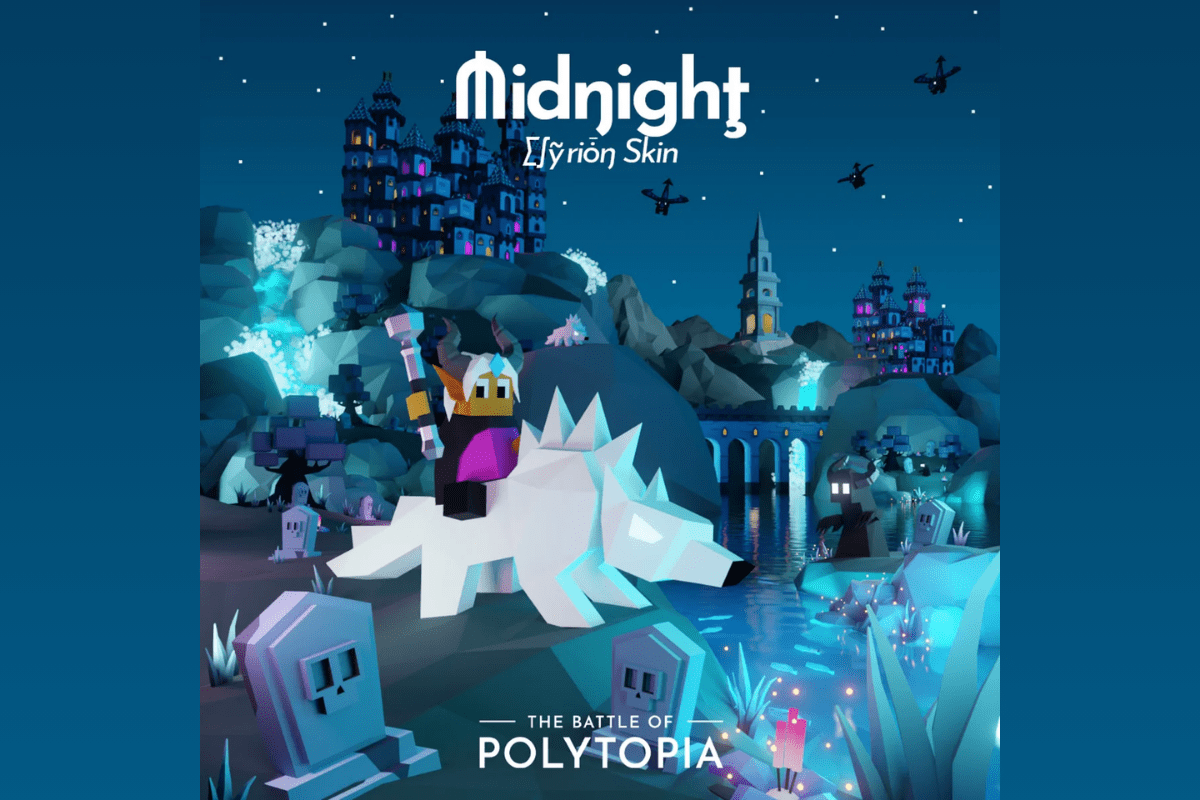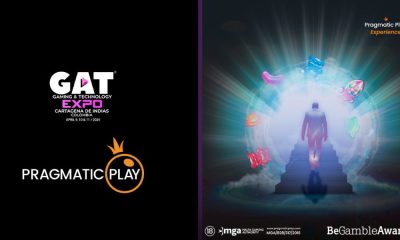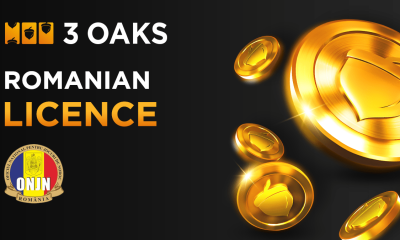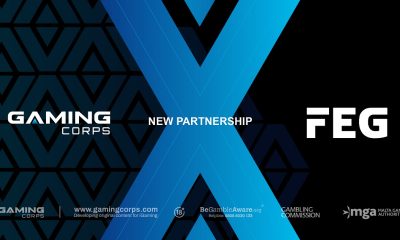Gaming
How game studios can avoid common network and infrastructure issues
Mathieu Duperré, CEO and Founder of Edgegap
It’s common for video game developers to launch a day-one patch for new releases after their games have gone gold. The growing size of video games means it’s inevitable that some bugs will be missed during the QA period and go unnoticed until the game is in players’ hands.
Some of the most common issues experienced by game developers at launch are related to network and infrastructure, such as the connection issues causing chaos in Overwatch 2 and Call of Duty: Modern Warfare 2, as some players experience issues connecting to matches. And while there’s no way of eliminating lag, latency and disconnects from multiplayer games, developers can minimize the chances of them occurring and the disruption they cause by following a few simple steps.
Plan for the worst, expect the best
For many video game developers, the best-case scenario for the launch of their game – that it’s a huge hit and far more people end up playing it than they expected – can also be the worst-case scenario for infrastructure-related issues. An influx of too many players can lead to severe bottlenecking, resulting in lag and connectivity issues. In a worst-case scenario, servers become overloaded and stop responding to requests, usually leaving players unable to connect to online matchmaking.
Another worst-case scenario is planning for big numbers at launch and building the necessary infrastructure to support this, only for your game to launch and have nowhere near the traffic you were expecting. Not only is this a big problem for your bottom line, but things can get worse if you rush your search for an infrastructure provider and forget to read through the T&Cs properly.
Some infrastructure suppliers will onboard new studios on a fixed contract, not letting them scale back if they’ve overprovisioned their servers. Some infrastructure providers offer a lot of free credits, to begin with, only for those credits to expire after the first few months. Game studios then discover they’re responsible for fronting the cost of network traffic, load balancers, clusters, API calls, and many more products they had yet to consider.
With that in mind, try not to sign up for long-term agreements that don’t offer flexibility for scaling up or down. Your server setup has a lot to gain by being flexible, and your server requirements will likely change in the weeks following launch as you get a better idea of your player base; under-utilized servers are a waste of money and resources.
Test, test, and test again
You haven’t tested your online matchmaking properly if you’ve tested your servers under the strain of 1000 players, but you’re expecting 10,000 or 100,000 at launch. Your load tests are an essential part of planning for the worst-case scenario, and you should test your network under the same strain as if you suddenly experienced a burst in players.
Load testing is important because you’ll inevitably encounter infrastructure issues as your network comes under strain. Still, it’s only by facing those issues that you can identify them and plan for them accordingly once your game launches.
Similarly, you want to test your game in as many different locations as possible because there’s no way of telling where your traffic will be coming from. We’ve had cases where studios released a very popular game overnight in Chile but needed data centers. Thankfully, you can mitigate issues such as these by leveraging edge computing providers to reduce the distance between your players and the point of connection.
Consider the specific infrastructure needs of your game’s genre
Casual games with an optional multiplayer component will have a completely different network requirement to MMORPGs, with thousands of players connected to a centralized world. Similarly, a first-person-shooter with 64-player matchmaking will have a different network requirement than a side-scrolling beat ’em up or fighting game, which often requires custom netcodes due to the fast-paced nature of the combat.
People outside the video game industry assume all video games have similar payloads, but different game genres are as technically different in terms of infrastructure requirements as specific applications.
With that in mind, it’s essential for game studios, especially smaller ones, to regularly communicate with infrastructure partners and ensure they’ve got a thorough understanding of how the multiplayer components of your game will work. A decent infrastructure provider will be able to work with you to not only ensure load testing is carried out correctly but also help diagnose any broader issues.
Too many tools and not enough resources to use them
One thing that large network providers are very good at providing is tools, but these are often complex and require specific knowledge and understanding. It’s worth noting that large game studios have dedicated teams of engineers to manage these tools for AAA games with millions of players.
Smaller studios need to be realistic about the number of players they expect for new game releases and their internal resources to manage network and infrastructure-related issues and queries. You should partner with a provider that can handle all of this, so your studio can focus on making the best game possible. The more automation you can plan into your DevOps methodology, the better!
Takeaways for small game studios
While game studios likely encounter many issues as part of their game development journey, working these three pieces of advice into your DevOps pipeline is a sure way of minimizing infrastructure-related headaches.
Don’t reinvent the wheel – We’ve seen many studios trying to build bespoke systems rather than automate and use what’s already out there. If you can develop your netcode, engine and manage your Kubernetes, that’s great! But is it necessary, or is building these things from scratch just going to create trouble further down the line?
Understand your workflows – Plan for everything, use tech-agnostic vendors to remain flexible, get real-time visibility and logs for your matchmaking traffic, and have a 24/7 support plan for when your game is live. The more potential problems you’re aware of, the better.
Load testing your game – Build tiny tools and scripts to generate as much traffic as you can, breaking your system as often as possible.
Gaming
Midjiwan Supports Reforestation Efforts With New Elyrion Tribe Skin In The Battle Of Polytopia

Midjiwan, the award-winning independent studio behind The Battle of Polytopia, is celebrating Elyrion (∑∫ỹriȱŋ) Tribe Week with a brand-new Midnight (₼idŋighţ) skin and donations to support reforestation.
Tapping into the Elyrion Tribe’s nature magic abilities, every purchase of an Elyrion item in the game will plant one real-world tree from April 22-28 2024. Midjiwan has teamed up with The Canopy Project, an organisation that works with global partners to reforest areas in urgent need of rehabilitation, combining The Battle Of Polytopia’s themes with a desire to make real change in the world. Previous years of Elyrion Tribe Week have resulted in the planting of over 12,000 trees.
The Elyrion Tribe is a mysterious group of elves, dedicated to defending their woodland home with their unique magic and connection with nature. Players using the Elyrion tribe have the ability to enchant animals into Polytaurs and summon powerful Fire Dragons.
Christian Lövstedt, General Manager at Midjiwan, commented:
“This is a hugely exciting partnership, allowing players to support the planet and contribute to reforestation whilst also accessing brilliant new content to use in The Battle Of Polytopia.”
Alongside donating to The Canopy Project, The Battle Of Polytopia also boasts a brand-new skin for the Elyrion Tribe! The Midnight skin allows players to create graves, build crypts, and summon demons in dark forests, all in service of the mysterious Shard of D’Naeh.
The Midnight skin re-skins the entire Elyrion Tribe as the Midnight Cult. Everything the Elyrion Tribe is all about – nature, enchantment, and sanctuary – is turned on its head, corrupted into a dark, twisted dystopia of itself.
Midjiwan has already invested €250,000 in solar power projects in rural areas around Africa, and other charitable projects. The studio continues to seek opportunities to combine its in-game creativity with real-world benefits. The Battle of Polytopia is available on Nintendo Switch, the App Store, Google Play, PC, and Tesla cars.
The post Midjiwan Supports Reforestation Efforts With New Elyrion Tribe Skin In The Battle Of Polytopia appeared first on European Gaming Industry News.
Gaming
Digital Asset Horse Racing Game Stables Appoints Lebnan Nader CEO And Unveils International Expansion Plan
Stables, the Paris-based Web3 Equestrian Fantasy Game, has appointed venture capital veteran Lebnan Nader as Chief Executive Officer.
Lebnan Nader, who had founded and run several gaming and technology businesses, will oversee an international expansion as Stables seeks to add horses and attract owners from outside its French home market.
Launched in January 2023, Stables was born from an ambitious project funded by PMU, the European leader and number 3 worldwide in horse betting, alongside the startup studio 321. The game is designed to bring the excitement of horse racing into the digital realm by combining real data from actual racehorses with an online Web3 gaming experience where horses are represented as tradable non-fungible tokens.
“Stables brings together two of my favorite domains, video gaming and horse racing. Two sectors I’ve been involved in for the past 12 years. The game’s ambitions are high, and that’s what convinced me,” said Lebnan Nader, CEO of Stables. “The teams have done a tremendous job, and we will continue to develop the game, but my priority will be our community, as they are our greatest strength.”
A graduate of HEC Paris with nearly 20 years experience in strategy, product development, and market positioning in the digital sector, Lebnan co-founded an internationally acclaimed video and VR gaming studio, and also co-founded a software company for lottery and betting operators.
PMU’s initial gamble to reach a new audience has paid off as Stables now boasts a community of several thousand engaged players, aged 25 to 40 on average. The community is currently composed of 70% French players and 30% from the rest of the world.
The Stables teams are now expanding the gaming experience by adding new features that will allow any player, even without owning NFTs, to be able to explore Stables for free. A seasonal horse racing system with an in-game leaderboard will be introduced, as well as “The Paddock Gazette,” a feature allowing the analysis of all NFT data and comparing their performances.
The ability to interact with other players and access numerous new horses are among the features currently in development.
“In 2023, Stables succeeded in realizing PMU’s bold vision of diversifying the world of horse racing into Web3 and becoming today’s reference in equestrian fantasy gaming. Contributing alongside its historic partners to the financial support for an accelerated development of Stables represents for the Tezos Foundation a natural progression to the adoption of Tezos. Among other things, the Tezos Foundation always listens to the needs of management teams and economically engages in projects that have adopted its blockchain to be an active participant in their growth stages,” says Jean-Frédéric Mognetti, Executive Director of the Tezos Foundation.
“Convinced of the relevance of the project, it seemed important to involve new investors. We enthusiastically welcome the financial support of the Tezos Foundation, which strengthens a proven technical collaboration that the project has benefited from since its inception,” comments Emmanuelle Malecaze-Doublet, CEO of PMU.
The post Digital Asset Horse Racing Game Stables Appoints Lebnan Nader CEO And Unveils International Expansion Plan appeared first on European Gaming Industry News.
Gaming
Speechless Announces Hybrid License, Giving Actors Greater Control Over Their AI-Generated Voices

New platform will enable voice actors to gain commission on their AI-generated counterparts while also streamlining the development process for studios
Today, Speechless, the voice actor database and asset tool for the games industry, has announced its new Hybrid AI License, combining real voice talent and generative artificial intelligence (AI). This new license will enable game developers to utilize all aspects of modern voice-over production while providing more equitable opportunities for the actors themselves. With the current games landscape increasingly experimenting with the potential of AI, Speechless is offering a solution that takes a greater ethical approach to this technology.
The first complete management system for the games industry, Speechless’ Hybrid AI License easily allows developers to use the full range of voice-over options in one place; from text-to-speech, speech-to-speech and conventional voice recording. Unlike other text-to-speech providers, Speechless’ integrated approach allows developers to access the voice actors behind the AI-generated, text-to-speech options. This license not only enables developers to gain greater creative control over voice production but also gives actors control over their AI-generated voice.
Voice actors will benefit from this license by having their AI-generated voice earn a commission when it is licensed by developers. In addition, developers can utilize text-to-speech options to refine their scripts before bringing on the voice actor for the full recording. Developers can then adjust the voice actor’s recording with its AI counterpart at the later stages of development, removing the need for reshoots and allowing voice actors to move on to new projects.
The potential of Speechless’ License also enables a greater depth of content for side characters and NPCs and streamlines localization in new markets while keeping voice talent involved. With the rise of generative AI in game development, Speechless is establishing the best practice for utilizing the advantages of this technology without excluding the creative talent of voice actors.
This new license is available immediately and follows Speechless’ recent collaboration with audio middleware leader Audiokinetic Wwise.
“We can’t ignore the potential AI has for the games industry but we need to approach this technology ethically; that’s what we aim to achieve when it comes to voice-acting,” the Chief Executive Officer for Speechless, Peo Drangert (pictured), said. “By offering a hybrid license, developers can streamline their processes and experiment with different voice actors at a lower cost. At the same time, voice actors are compensated for their work and the work of their AI-generated voice, have greater opportunities to collaborate with studios and can work more flexibly. AI will continue to grow in the games sector, so we must use it responsibly to ensure a fairer industry.”
The post Speechless Announces Hybrid License, Giving Actors Greater Control Over Their AI-Generated Voices appeared first on European Gaming Industry News.
-
Africa3 weeks ago
BMM Testlabs Continues Its Expansion in Africa with New Licenses in Botswana and Nigeria to Test Land-Based and Digital Products
-
Australia3 weeks ago
VGCCC Fines Bookmaker MintBet $100,000 for Repeat Breaches of its Responsible Gambling Code of Conduct
-

 GAT Expo4 weeks ago
GAT Expo4 weeks agoPragmatic Play Prepares for GAT Cartagena Gaming Week 2024
-

 Compliance Updates4 weeks ago
Compliance Updates4 weeks ago3 Oaks Gaming extends European reach with Romania licence
-

 Central Europe4 weeks ago
Central Europe4 weeks agoGaming Corps makes key European addition with Fortuna Entertainment Group partnership
-

 Press Releases1 week ago
Press Releases1 week agoOpenBet Powers Record-Breaking 100,000+ Peak Bets per Minute at Grand National 2024
-
Africa3 weeks ago
KingMakers’ Nigerian operating business, BetKing, selects Genius Sports to power growth with in-play trading services
-

 Africa3 weeks ago
Africa3 weeks agoIESF African Regional Qualifiers Host Announced




